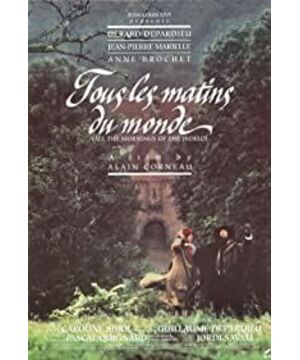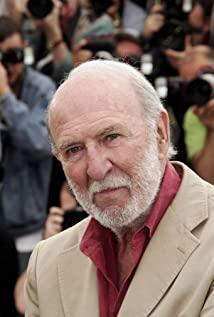When I entered the auditorium, I found that there was not even a formal ticket check. I suddenly felt that the invoice sent yesterday was nothing short of performance art... Two children from the Huayuan Institute (hehe, saying that other children always make me feel good) wingring and The leader is accompanied, and the waiting time before watching is not too boring. When I watched it, I was depressed to find that all the subtitles were written on a small pillar on the front side of the screen. It was really tiring to watch the film on the left and right sides, but I finally got used to it. The opening scene was obviously not in focus, and the picture was so blurry that it became impressionistic. However, the most important thing is that the movie itself is still good.
--------------------------I am a lonely dividing line--------------
Okay, get back to the story The movie itself, "Let the Sorrow End at Sunrise." What impression does this name give you? Anyway, for me, it's slurred. Ten minutes before writing this article, even after watching the movie, I still didn't remember my name. Compared with the two typical new wave works in the morning and afternoon, this one can be regarded as a representative of a return to high-quality movies-a very literary story with a sentimental sentiment, but it is just as good. When the new wave has become a new tradition and popular, when the new wave has become a new hegemony with innovative slogans and the right to speak, returning to high-quality movies has become an innovative move. Moreover, telling a story with patience and moderation is closer to the movie itself than the unintelligible turning the movie into a political essay full of prejudice and ignorance. Hehe, you know who I am talking about.
The technique and tone of the film are very calm. If there is something that seems shocking to the world-although this movie that won the Caesar Award is considered a mainstream film, even if it is a mainstream movie, the French do not forget some of Xiaoxuan's methods to prove their "authority"- I think it should be the super long close-up of Depardieu’s big fat face at the beginning, the messy piano sound in the background, his own anxiety and disappointment, and the low voice, the lens is fixed on his face for a long time, from At the beginning of the film, people are brought into a rather depressive atmosphere-this film treats the audience with the same character as the Columbus luthier mentioned later, gloomy and depressing you, but it will occasionally be happy for no reason. That’s a little bit, but bright colors are often just a foreshadowing of deeper sentimentality. In the end, you realize that, as Columbus himself said, it is difficult to express under this depression, but it can indeed make you experience what you love and this life through music. Kind of passion.
Just looking at this story, it is actually very common, a gloomy musician, and a story of chaos and abandonment-if you have to summarize it briefly, this is it. But ordinary is not the same as mediocrity. If you read Chekhov's melancholic "House with Attic", the story will be very simple, but a successful work lies in its ability to make ordinary stories unfamiliar. What will it look like if you shoot in a habitual way? It may become another "Sea Pianist", which looks very fancy, but the gorgeous narrative is sifted out, and there are few straws left. Looking at this one again, a large section of Violian music runs through the film. This in itself is a kind of rejection, a kind of hoarse and monotonous sound at the beginning, to reject the enthusiasm for fancy and complicated-Malan. Mach’s first tune was rejected by Columbus. It was also because of this. The tune was too jumpy and tedious. If it can only be done like that, why add the deep seventh string?
"The film expresses a clean pursuit, which seems to be aimed at music, but in fact it is precisely because of his inability to express that music has become a means and a symbol. Only through it can he convey his feelings and express his feelings. Your own love can transcend the boundary of life and death through it. What it conveys is still a kind of love.” After watching the movie, the leader asked me what the movie told me, and I bit the bullet and told him this. Actually, I can’t say it. It’s hard to say that I read "understand" or "understand". I think I can experience the feeling in music, but as Kieslovsky said, if I can use words The meaning in the film is fully expressed, what else do you want to make this film?
When Malan Maher finally saw the teacher in the sound of the piano, what he wanted to say was clear. He finally felt it. He finally realized it. Therefore, he also transcended life and death in music, but love is no longer possible. Stayed again.
View more about Tous les matins du monde reviews











